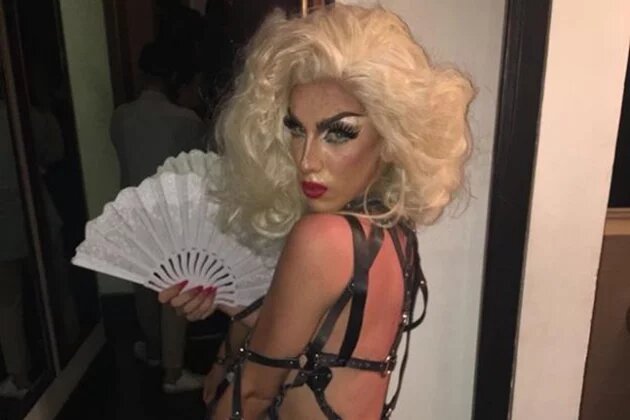Bassem Feghali is one of the most popular Lebanese TV stars, famous for his impersonations of Arab celebrities such as Fairuz and Nancy Ajram but also of international personalities like Britney Spears or Marilyn Monroe. Although his use of wigs, feminine clothing and makeup means that he does not conform to traditional notions of male role models, he has gained extraordinary popularity on social networks like Facebook and LBC TV station even dedicated an entire show to him during Ramadan, “Alf Wayle Bi Layle“. The title loosely translates to “1000 fooleries in a night” and is a word-play on “Alf Layle ua Layle“, “Thousand and One Nights” or “Arabian Nights” as it is known in English.

Given the audience’s resoundingly positive reaction to Feghali, one could assume that the LGBT community in Lebanon is also treated with goodwill and that, by extension, an increasingly tolerant attitude towards taboos such as sexuality and gender can be expected. In actual fact, Feghali has, to this day, not come out to his (mostly heterosexual) fan base, and Lebanese media simply refer to him as an “entertainer”.
However, reducing Feghali to his entertainment value alone means ignoring the importance of the drag queen scene. Many drag queens in Lebanon raise political issues and challenge the patriarchal system.
Despite legal discrimination and a lacking tolerance of diversity when it comes to sexuality and gender, a scene that fundamentally questions both heteronormative structures and traditional role models has established itself in Beirut during the course of the past months. Some proprietors make their clubs or bars available for their events and, in doing so, give people the option to abandon traditional gender roles and to slip into a different persona as a drag queen. Neither the costumes nor the entertainment truly lie at the core of these events. Instead, the objective is to break social taboos. For example, sex and permissiveness take centre stage by means of unconventional clothing and as a result, they are made approachable.
Given that many Lebanese families still attempt to maintain the duality of man and woman, personal identity conflicts can oftentimes only be resolved during the drag queen performances: While social and familial pressures prevent living out one’s own identity, precisely these evenings create a platform for individuality and diversity.
Following their performance, each drag queen has the opportunity to briefly voice their thoughts and these moments reveal that it is about much more than merely the imitation of famous people. For the stage is more often than not dominated by serious topics like suicide prevention, instead of entertaining jokes. All in keeping with the principle: You are not alone, we have been through it as well. That may sound corny but, given the taboos on sexuality and gender in all other facets of life which frequently lead to depression or suicidal thoughts, its impact should not be underestimated. As a conversation about these psychological problems would amount to outing oneself, most of those affected tend to neither speak to their families about them nor do they seek professional help. Against this backdrop, the “drag queen shows” assume even greater political and social relevance.
And it is for good reasons that drag queens who pass on their experiences to younger individuals call their protégées “drag children” – an alternative family structure so to speak, a safe space in which identity conflicts can be resolved and where everyday familial pressures fade into the background, at least for the evening!